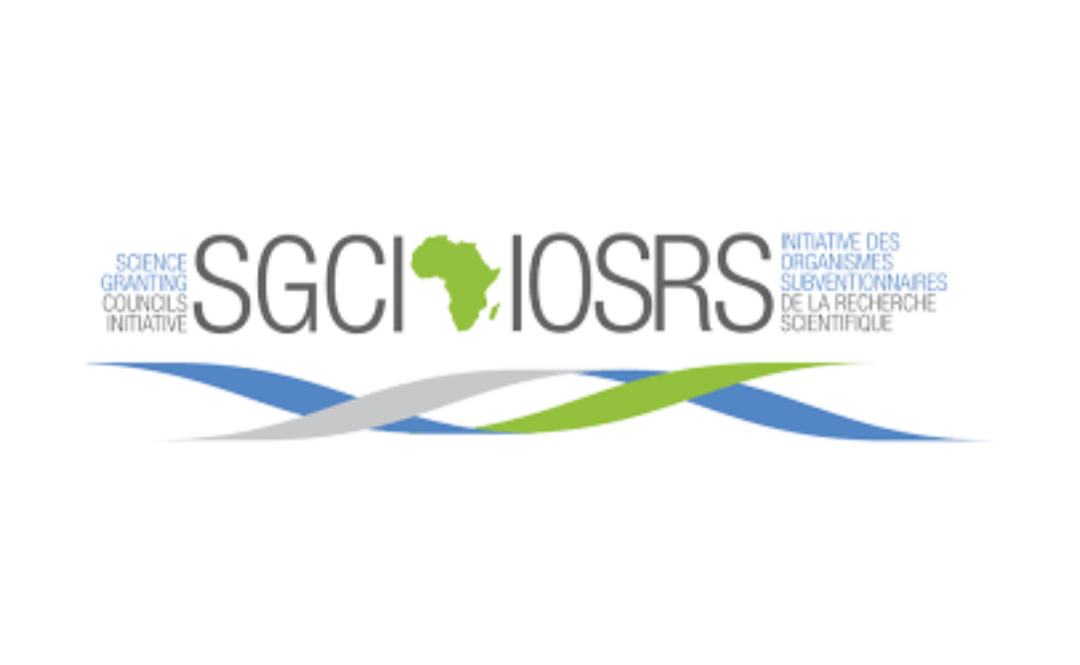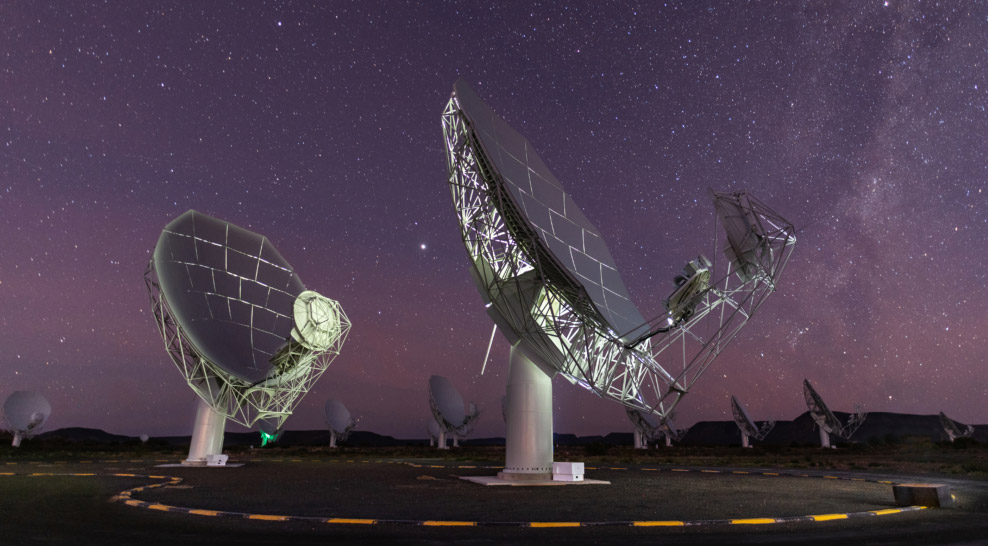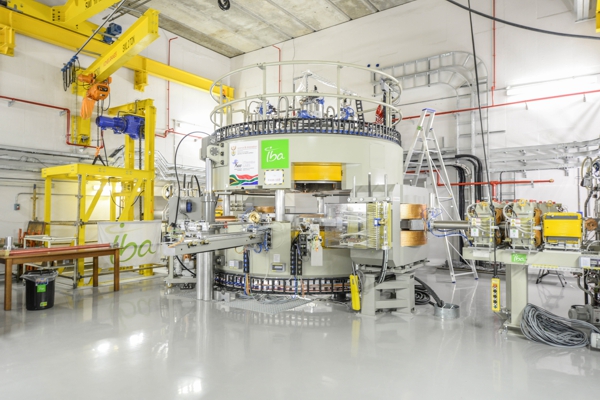Dr Qhobela has strong connections with a range of pan African institutions and initiatives such as the African Academies of Sciences, the Council for the Development of Social Sciences in Africa (CODESRIA), the Regional Universities Forum for Capacity Building in Agriculture (RUFORUM), the African Open Science Platform (OASP) and the Science Granting Councils Initiative (SGCI) in Sub-Saharan Africa.
Some of the recent and notable achievements under his leadership include the following:
Completion of
The 64 dish MeerKAT telescope
Completion of the 64 dish MeerKAT telescope, which will form part of the SKA; the construction of an array of radio telescopes on the Continent to form the African Very Long Baseline Interferometry (VLBI) Network (AVN). The SKA AVN partners are South Africa, Botswana, Ghana, Kenya, Madagascar, Mauritius, Mozambique, Namibia, and Zambia. The AVNwill help to develop the scientific and technical skills, regulations and institutional capacity needed in these countries to optimise African participation in the SKA and enable participation in technology development and science.
Growth of the
Science Granting Councils Initiative (SGCI)
Growth of the Science Granting Councils Initiative (SGCI) , which aims to strengthen the capacities of 15 science granting councils in sub-Saharan Africa in order to support research and evidence-based policies that will contribute to the continent’s economic and social development. The participating countries are, Botswana, Ethiopia, Kenya, Uganda, Tanzania, Rwanda, Senegal, Ghana, Cote d’Ivoire, Burkina Faso, Zambia, Zimbabwe, Malawi, Mozambique, and The highlight of this initiative so far has been the awarding of 10 research chairs, named after Oliver Reginald Tambo. The Chairs are valued at US$ 250,000 per annum, and will be held by Africans at African universities. They will conduct research and support high-end skills development on a diverse range of topics including climate, public health, entrepreneurship and youth employment.

Establishment of the
African Open Science Platform (AOSP)
Establishment of the African Open Science Platform (AOSP). Open Science is a powerful driver of scientific research and scholarship and its application to social, economic and global environmental priorities. Open Science provides a platform for the democratization of knowledge on the Continent and beyond. The AOSP was established in 2017 as a pan African initiative with an aim to position African scientists at the cutting edge of data intensive science by stimulating interactivity and creating opportunity through the development of efficiencies of scale, building critical mass through shared capacities, and amplifying impact through a commonality of purpose and voice.
Establishment of the
South African Isotope Facility (SAIF) at iThemba LABS
The establishment of the South African Isotope Facility (SAIF) at iThemba LABS. Conceptualized in 2017 and completed in 2022, this major strategic intervention will alter the landscape of accelerator based physics research on the African continent. The first phase of SAIF is centred around the acquisition of a 70 MeV Cyclotron to enhance research and production of radioisotopes for nuclear medicine; with the concomitant benefit to free-up more beam time for subatomic physics research and applications.



